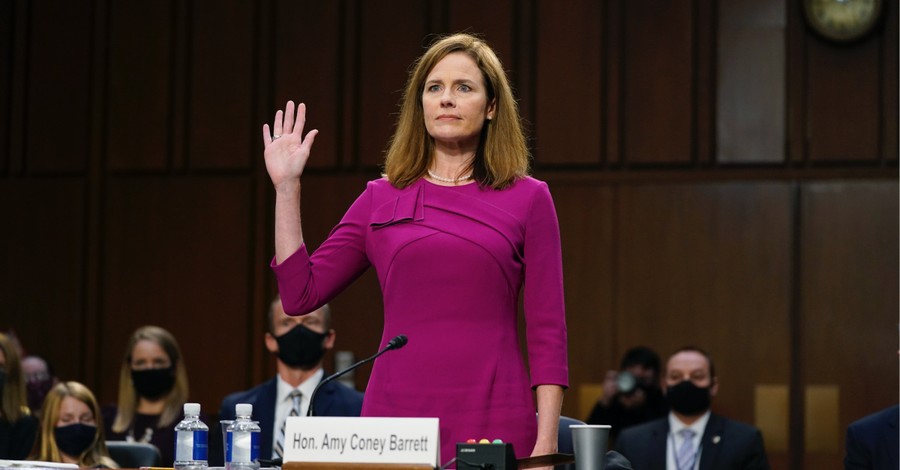'I Believe in the Power of Prayer': Amy Coney Barrett Thanks Americans…
Michael Foust | ChristianHeadlines.com Contributor | Monday, October 12, 2020
America’s courts have a limited role in society and are not intended to “right every wrong,” Supreme Court nominee Amy Coney Barrett said Monday during her opening statement to the U.S. Senate Judiciary Committee.
“Courts have a vital responsibility to enforce the rule of law, which is critical to a free society,” Barrett said. “But courts are not designed to solve every problem or right every wrong in our public life. The policy decisions and value judgments of government must be made by the political branches elected by and accountable to the people. The public should not expect courts to do so, and courts should not try. That is the approach I have strived to follow as a judge on the Seventh Circuit.”
President Trump nominated Barrett to replace the late Ruth Bader Ginsburg, who served 27 years on the court and died Sept. 18. If confirmed, Barrett would be the fifth woman to serve on the high court, but the first mother of school-age children to serve.
She thanked Americans for their encouragement and prayers.
Barrett, 48, was confirmed to the U.S. Seventh Circuit Court of Appeals in 2017 after serving as a law professor at the University of Notre Dame. She and her husband, Jesse, have seven children.
“In every case, I have carefully considered the arguments presented by the parties, discussed the issues with my colleagues on the court, and done my utmost to reach the result required by the law, whatever my own preferences might be,” Barrett said. “I try to remain mindful that, while my court decides thousands of cases a year, each case is the most important one to the litigants involved. After all, cases are not like statutes, which are often named for their authors. Cases are named for the parties who stand to gain or lose in the real world, often through their liberty or livelihood.
“When I write an opinion resolving a case,” she added. “I read every word from the perspective of the losing party. I ask myself how would I view the decision if one of my children was the party that I was ruling against: Even though I would not like the result, would I understand that the decision was fairly reasoned and grounded in the law? That is the standard that I set for myself in every case, and it is the standard that I will follow as long as I am a judge on any court.”
Barrett, who served as a clerk under the late Justice Antonin Scalia, said the “reasoning” in his opinions “shaped” her. Scalia, who died in 2016, was a favorite justice to many conservatives.
“His judicial philosophy was straightforward: A judge must apply the law as it is written, not as she wishes it were,” she said. “Sometimes that approach meant reaching results that he did not like. But as he put it in one of his best-known opinions, that is what it means to say that we have a government of laws, and not of men. Justice Scalia taught me more than just law. He was devoted to his family, resolute in his beliefs, and fearless of criticism. And as I embarked on my own legal career, I resolved to maintain that same perspective.”
Barrett did not want her legal career, she said, to be “all-consuming” in her life.
“That makes for a shallow and unfulfilling life,” she said. “I worked hard as a lawyer and a professor; I owed that to my clients, my students, and to myself. But I never let the law define my identity or crowd out the rest of my life.”
Barrett thanked Americans for their encouragement.
“I would like to thank the many Americans from all walks of life who have reached out with messages of support over the course of my nomination. I believe in the power of prayer, and it has been uplifting to hear that so many people are praying for me,” Barrett said. “I look forward to answering the committee’s questions over the coming days. And if I am fortunate enough to be confirmed, I pledge to faithfully and impartially discharge my duties to the American people as an associate justice of the Supreme Court.”





